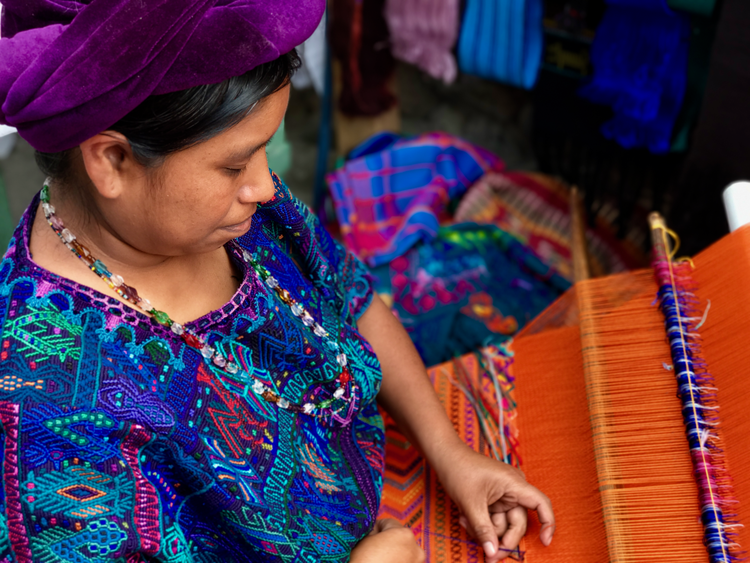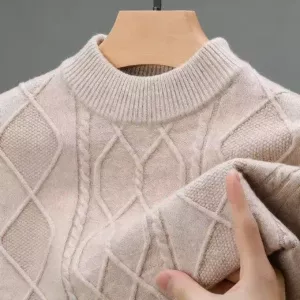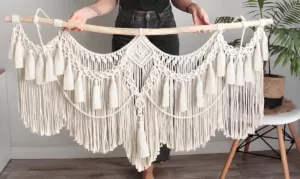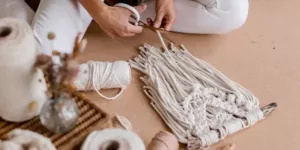How to stop fast fashion in its tracks?
We know it can be overwhelming to task yourself with solving the fast fashion crisis (trust us, we feel this daily!) We’ve broken it down and created a list of some simple yet effective ways to STOP contributing to fast fashion and START living a more mindful life (yay).
- Use natural fibers, like cotton, wool, or silk, that can naturally break down. The key in “breaking down” is that there is no polluting or chemical factors that remain. Products made with polyester or nylon are synthetic materials, meaning it also is made with plastic. So when a polyester item goes to breakdown in landfill it actually only breaks down to micro-plastics aka microscopic pieces of plastic. It’s estimated that polyester takes 200 years to break down fully. You can check for the material on the tag of the clothing item, usually found behind the collar or along the inseam. Buying naturally occurring materials dramatically decreases the millions of tons of trash we are sending to landfill annually!
- Use natural dyes instead of synthetic dyes. The difference determines the amount of water that is polluted from dyes. While cheaper, synthetic dyes contain chemicals like mercury, and lead that are extremely damaging. Synthetic dyes are usually diluted in large vats in order to dye threads. Most companies then use more water to drain excess dye. Companies dump and drain most of that water. This leaves excess dyes and foreign chemicals leaching into our environment and water sources, resulting in unknown effects on our skin from wearing clothes with synthetic dyes. Think about it, before you even leave the hospital someone has already slipped you into a onesie. Do we know the effects it may cause or how everyday fabrics contribute to our skin (our largest organ) long-term?
- Finding the material of a clothing item is easy to find. They will always be on the tag of the item. However, knowing how the product is dyed is a completely different beast. Because there is no formal law, most companies don’t advertise how they dye their products. So you may have to do some research either online or make a call/ email but the manufacturer should be able to tell you there process.
Actionable Steps You Can Take
- Research Research Research! Take time to dig into the ethics and materials behind the brands you shop with! Most ethical companies will make it easy for you to find this information but if you can’t find them, call!
- Buy second hand and cut down on textile waste, AKA get thrifty! Thrifting is great because you’re essentially giving your clothes a second life. There are also online thrift stores, like Thread Up, apps, that will actually ship your thrifted items right to your home.
- Another really fun alternative are clothes swaps! This is essentially like going shopping at your friends closet. Have a few of your friends go through their closets and pick a few pieces they don’t love anymore. Host a party where you all go through and choose who gets which new item(s). It’s absolutely free, and an easy and fun way to spruce up your wardrobe.
All of these tips are mad to help you become a Conscious Consumer. Remember that what YOU buy YOU create a demand for. Living sustainably means staying away from fashion trends and buying real quality pieces. Using high-quality products that last much longer, especially pieces that have a timeless style.



SWIMMING AGAINST THE CURRENT – How Woven is refusing to follow traditional fashion standards. (materials & processes)
We all get why fast fashion is a strict no-no but what does that mean in terms of running a brand? Woven Futures has made it a priority to uplift people first: this means artisans, customers, and partners. We also do our best to lead by example when it comes to sustainability. We believe that as a consumer you should be well informed and conscious of the products you buy. Even more, we believe that the company should make the product as sustainably as possible. These are some of the steps we take to be a sustainable company.
- Materials: Woven uses all-natural plant-based dyes that are sourced from Guatemala and have been used for traditional Guatemalan textiles for centuries. Woven also uses only natural fibers such as cotton, silk, and leather. Woven products are dyed naturally meaning we use flowers, bark, and bugs. That means that every color is vibrant, organic, and unique. This ensures that they breakdown naturally and quickly without polluting the environment.
- Value: Now we know what you’re thinking. Doesn’t hand crafted mean more expensive? And you’re partly right. Each piece costs more than you would see in a regular store. However, it’s actually a more economical way to shop. Let’s do the math on this.
Buying a $20 bag that will only last you three months will lead a consumer to spend $80 over four bags to last a year. Spending $45 for a Woven Recycled Tote that last several years allows consumers to actually save money long-term!
- Quality: Perhaps the best part of Woven’s sustainable efforts is the ability to create pieces that can withstand the test of time. These pieces are not only made by incredibly talented artisans who dedicate their lives to this practice but in doing so the pieces last a lifetime. These products are a result of a timeless tradition of weaving, the Artisans have perfected their craft. These pieces last 5 times longer than mass produced pieces. Plus the simple structure and organic style of each piece guarantees that every Woven piece.









